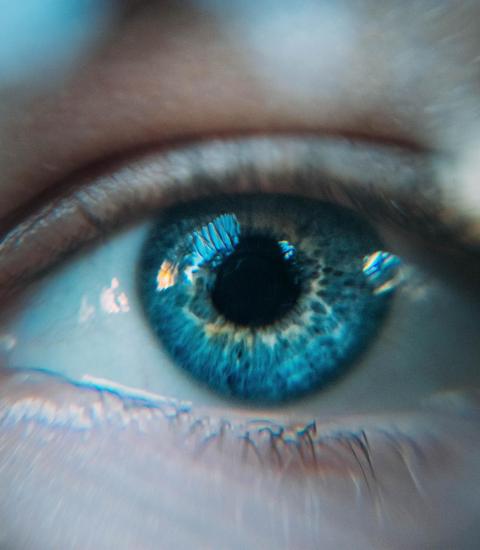
Why is this a problem?
A reduction in eyecare services means that:
- Asymptomatic eye diseases (such as glaucoma) have remained undetected in some people.
- Sight-threatening conditions such as macular degeneration, glaucoma and diabetic retinopathy have not been monitored. Toro and co-authors [2] predict this will have major consequences for the long-term management of these conditions.
- People with correctable eye conditions such as cataracts have been living with vision that may have hindered their ability to partake in everyday tasks, such as reading, driving and watching television. In Italy it is estimated that there were 50 000 less cataract operations per month because it was not considered emergency surgery [2].
- There are now longer waiting times for semi-urgent and non-urgent ophthalmology appointments, including increased waiting times for cataract surgery, as a direct consequence of the COVID-19 pandemic [3].
Even basic services, such as having your spectacles or contact lenses updated, has taken a back seat – despite the fact that many of us are spending more and more time with our eyes glued to the computer monitor as we manage working-from-home.
Book in for an eye examination
It might sound crazy, but your vision can change very subtly over time, and you might be unaware that you can’t see so well.
When working in clinical practice I lost count of the number of times that I covered up one eye of a patient when asking them to read from the letter chart, only for them to let out a horrified shriek “What? I can’t see with this eye!”
If you are able to do so, make an appointment for an eye examination. Your eyecare practitioner can check that your eyes are healthy, and that your spectacles / contact lenses are providing you with the best vision.
Also check in with your elderly friends and relatives
When did they last have an eye examination?
Many older people have limited their movement outside the home because they feared contracting COVID-19. They may have cancelled their routine eye examinations.
But this segment of the population has a high risk of eye diseases such as glaucoma and macular degeneration, and complications from diabetes, such as diabetic retinopathy.
If you still can’t access eyecare because of COVID-19
You can still make eyecare and eye health a top priority in your life.
World Sight Day is celebrated in October each year, and the theme for 2021 is #LoveYourEyes. This year’s campaign offers a holistic approach for good eye health:
- Prevent eye disease by having a healthy lifestyle and eating well.
- Protect your eyes from injury.
- Preserve your vision and have a regular eye examination.
- Prioritise your vision by adopting “love your eyes” as a life mission.
It’s worth checking out their website to learn more about this strategy.
Take action
In Sydney where I live, we were recently in lockdown for nearly 4 months. When the lockdown lifted, the talk of the town was being able to get an appointment to have a haircut.
You may also have endured extended lockdowns where you live.
As restrictions ease, services open up, and we learn to live with COVID-19, don’t forget to add “EYE EXAMINATION” to your list of things to do.
References
[1] Sanjay S, et al. (2021) Global ophthalmology practice patterns during COVID-19 pandemic and lockdown. Ophthalmic Epidemiology. DOI: 10.1080/09286586.2021.1934037
[2] Toro MD, et al (2021) Early impact of COVID-19 outbreak on eye care: Insights from EUROCOVCAT group. European Journal of Ophthalmology 31(1): 5-9. DOI: 10.1177/1120672120960339.
[3] Optometry Australia (2021) Working together for better eye care. https://www.optometry.org.au/wp-content/uploads/Working-Together-for-Better-Health-Care-update-16Aug2021-update.pdf
Photo by Daniil Kuželev on Unsplash
Jennifer Long is a visual ergonomics consultant based in Sydney, Australia. www.visualergonomics.com.au



